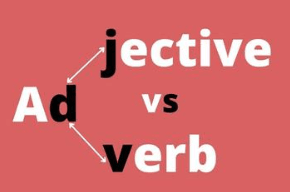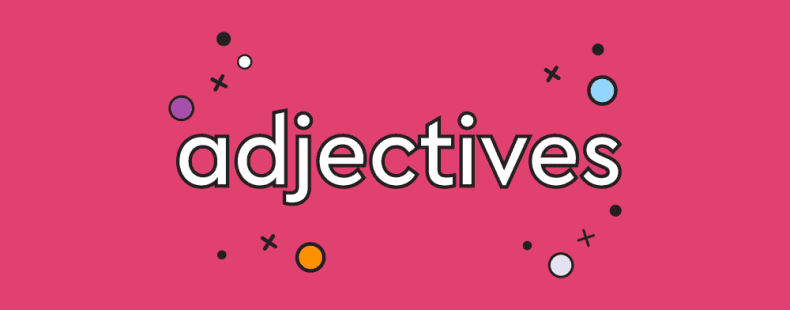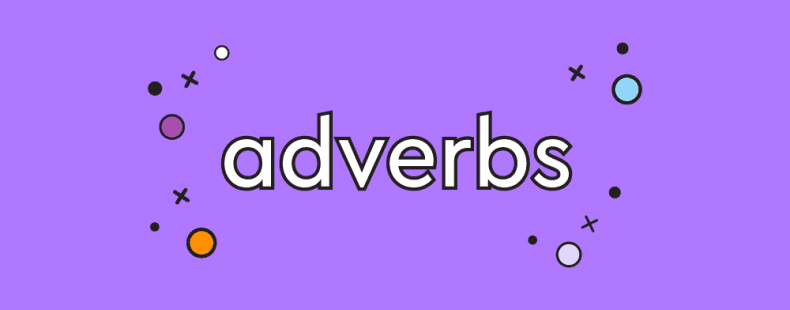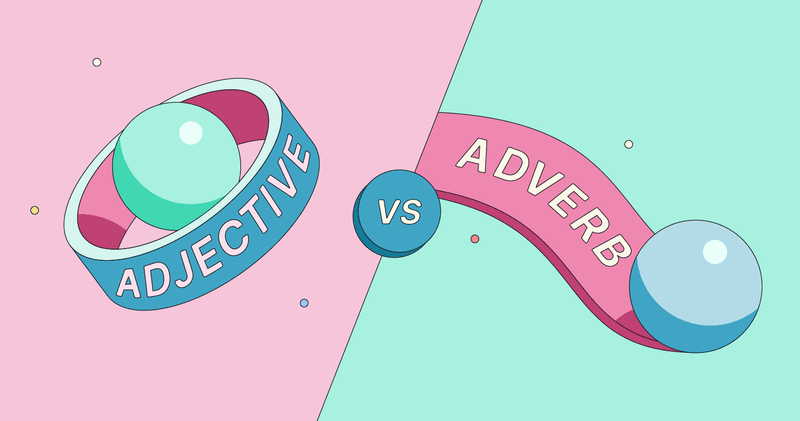Dueling Descriptors: The Distinction Between Adverbs and Adjectives
Contents

We've all been there — that heart-sinking moment in a meeting when all eyes are on you and the words that tumble out seem to make no sense. Imagine Ravi has an excellent understanding of his field but struggles to communicate his ideas flawlessly in English. During one crucial presentation, he uses the adverb 'beautifully' instead of the adjective 'beautiful', saying "We have a beautifully product to offer", and confusion follows.
Ravi's predicament isn't uncommon. Many non-native English speakers in India grapple with similar challenges, unsure about adverbs and adjectives' differentiation. When you confuse an adjective for an adverb or vice versa, your message loses its clarity, making communication less effective.
This article aims to shed light on this issue, explaining the difference between adverbs and adjectives. We'll explore the meaning of these terms, provide practical exercises for better understanding.
What are Adjectives?

An adjective is a word used to describe or modify a noun or pronoun. Adjectives spice up sentences by providing additional details, making them more engaging and informative.
For example, consider this sentence - "Ravi bought a shirt." But what kind of shirt did Ravi buy? Was it expensive, cheap, stylish, or dull? The words 'expensive', 'cheap', 'stylish', 'dull' are all adjectives because they provide more information about the shirt. Without them, our conversation sounds bare and uninteresting.
What are Adverbs?

When we navigate the road to English language proficiency, adverbs act as our compass, fine-tuning our expressions with precision. In essence, an adverb is a word that modifies verbs, adjectives, or other adverbs. It provides additional information about how, when, where, or in what manner something happens.
For instance, let's consider the sentence "Rahul runs fast". Here 'fast' is an adverb because it describes how Rahul runs.
To illustrate with some adverb vs adjective examples from real-life scenarios:
If you're watching an exciting cricket match and exclaim "Virat Kohli plays brilliantly!", 'brilliantly' is the adverb modifying the verb 'plays', indicating the quality of Kohli's performance.
Adjective vs Adverb Meaning: What’s the Difference?

When it comes to understanding adverbs and adjectives, remember that they both have unique roles in English grammar.
Adjectives are words that describe or modify other words, mainly nouns. For example, in the sentence "She wore a beautiful saree", 'beautiful' is an adjective describing the saree.
Adverbs, however, modify verbs, adjectives or other adverbs. They usually answer questions like how, when, where, why, or to what extent. Take this sentence: "He runs quickly." Here 'quickly' is an adverb explaining how he runs.
Let's summarize this with a comparison table:
Adjective | Adverb |
Modifies nouns | Modifies verbs, adjectives or other adverbs |
Answers what kind? which one? how many? | Answers how? when? where? why? to what extent? |
Here are some key points to remember:
An adjective describes a noun: He has a fast car. ('Fast' tells us about the car)
An adverb defines a verb: He drives fast. ('Fast' tells us about his driving style)
Adjective vs Adverb Clause: Which One is It?
Understanding the difference between adjective and adverb clauses can be a real game-changer in mastering English grammar. Let's simplify this for you.
An adjective clause, also known as a relative clause, modifies a noun or pronoun. It starts with relative pronouns like 'who', 'which', 'that', etc. For instance, "The book, which I bought yesterday, is engaging." Here, the clause 'which I bought yesterday' describes the noun 'book'.
On the other hand, an adverb clause modifies verbs, adjectives or other adverbs. It typically starts with subordinating conjunctions like 'because', 'if', 'when', etc. In the sentence, "I will call you when I arrive," the clause 'when I arrive' is modifying the verb 'call'.
Now, let's look at a simple 3-step process to identify whether a clause is an adjective or an adverb:
Identify the clause.
Determine what it is modifying - if it's a noun/pronoun, it's likely an adjective clause; if it's a verb/adjective/adverb, it's likely an adverb clause.
Check the first word of the clause - if it’s a relative pronoun (who/whom/whose/which/that), it’s probably an adjective clause; if it’s a subordinating conjunction (after/because/before/if/since/until/when/etc.), it’s probably an adverb clause.
Adverb vs Adjective Worksheet: Practice Makes Perfect
The journey to mastering English isn't always easy, but it's certainly made smoother with practice. Test yourself with some adverb vs adjective exercises.
Consider this sentence: "Rahim runs quickly." In this instance, 'quickly' is an adverb modifying the verb 'runs'. Now take another example: "Rahim is a fast runner." Here, 'fast' is an adjective describing Rahim as a runner.
Remember, adverbs typically answer how, when, where, how much, or how often something happens, whereas adjectives describe or modify nouns. Try using this adverb vs adjective quiz to test your understanding further.
Read the following sentences and identify if they have an adjective or an adverb:
He spoke loudly during his speech. (Adverb or adjective?)
She has a beautiful voice. (Adverb or adjective?)
The rain fell heavily last night. (Adverb or adjective?)
The mangoes are incredibly sweet this year. (Adverb or adjective?)
Common Mistakes in Using Adverbs and Adjectives
Let's identify some common errors and how you can avoid them:
1. Misidentifying the adverb vs adjective meaning:
Remember, adjectives describe nouns (e.g., a red apple), while adverbs modify verbs, adjectives, or other adverbs (e.g., she runs quickly).
2. Incorrect positioning:
Adjectives usually come before nouns they modify (a beautiful song). Adverbs generally follow the verb (he sang beautifully).
3. Overuse of -ly suffix:
Not all words ending in -ly are adverbs! Some adjectives also end in -ly, like ‘friendly’ or ‘lonely’.
4. Confusing comparative forms:
Use ‘more’ for non-comparative adjectives and ‘-er’ for short ones. For example, ‘more beautiful’, but ‘faster’.
5. Neglecting degree modifiers with absolute adjectives:
Absolute adjectives like 'perfect' do not usually have comparative or superlative forms, so avoid saying 'more perfect'.
For more insights on common mistakes learners make while learning English, check out Clapingo's YouTube channel which covers additional problematic areas in detail.
To Sum Up
In our journey through the fascinating world of English grammar, we've delved into the crucial roles of adverbs and adjectives.
We've learned that adverbs describe verbs, adjectives, and other adverbs, adding depth to our sentences. Adjectives make nouns more specific and interesting.
Our dive into adverb vs adjective examples has shown us how these two grammatical elements are used differently in sentences. The adverb vs adjective exercises have given you a chance to test your skills and understand the practical applications of these rules.
This journey might be challenging but remember that every step you take brings you closer to mastery. And Clapingo is right there with you - providing guidance at every turn and ensuring learning English becomes not just an essential skill but also a delightful experience.
FAQs
1. What is an adverb?
An adverb is a part of speech used to modify verbs, adjectives, or other adverbs. They describe how, where, when, how much, and with what frequency something happens. For instance, in the sentence "She sings beautifully", 'beautifully' is an adverb modifying the verb 'sings' by telling us how she sings.
2. What is an adjective?
An adjective is a word that describes or modifies nouns or pronouns. Adjectives provide additional information about an object's size, shape, age, colour, origin or material. Example: "The tall building". Here 'tall' is an adjective describing the noun 'building'.
3. How can I distinguish between an adverb and an adjective?
In English grammar, the primary difference between an adverb and an adjective lies in what they modify. Adjectives modify nouns and pronouns while adverbs primarily modify verbs. Adverbs often end in '-ly', though not exclusively so.
Consider this adverb vs adjective example: "He runs quickly." (adverb modifying the verb 'runs') versus "He has quick reflexes." (adjective modifying the noun 'reflexes').
Comments
Your comment has been submitted